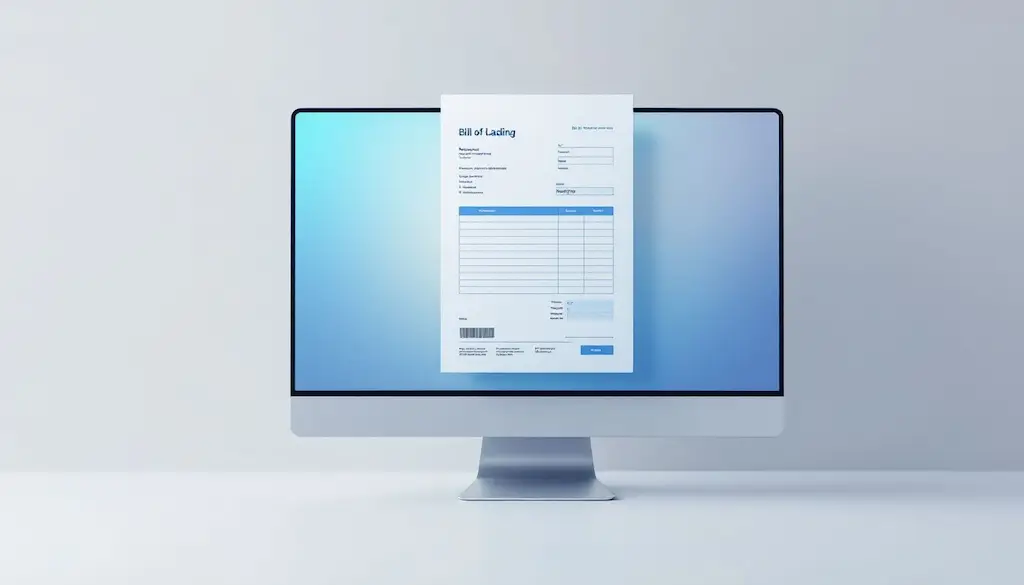
In today’s rapidly evolving digital landscape, staying competitive requires more than just hard work and dedication. To truly excel, businesses must leverage technology to streamline operations, boost productivity, and enhance decision-making. The right software solution can be a game-changer, providing the tools you need to manage every aspect of your business efficiently. But with the myriad of options available, how do you choose the best software system for your company? This blog will guide you through the essential steps to selecting the right software for your business needs, from understanding the various types of systems available to identifying the key features that will benefit your operations the most.
The Role of Business Software in Today’s Market
Gone are the days when businesses relied solely on manual processes and spreadsheets to keep track of operations. In today’s competitive environment, efficiency and accuracy are paramount, and business software systems have become indispensable tools for success. Whether you’re a small business owner or the CEO of a large enterprise, the right company software system can help you manage everything from finances and human resources to customer relationships and supply chain logistics.
But what exactly is a business software system? Simply put, it’s a set of programs and applications designed to help companies manage their day-to-day operations. These systems vary widely in scope and functionality, ranging from basic accounting software to complex, end-to-end business management software that integrates multiple departments and functions.
Types of Business Software Systems
When it comes to choosing a software solution for your business, it’s crucial to understand the different types of systems available. Here’s a breakdown of the most common categories:
- Accounting Software: Designed to handle financial transactions, payroll, invoicing, and tax calculations, accounting software is a must-have for businesses of all sizes. It helps ensure accuracy in financial reporting and compliance with regulatory requirements.
- Customer Relationship Management (CRM) Software: CRM software helps manage interactions with current and potential customers. It’s essential for tracking sales leads, managing customer data, and improving customer service.
- Enterprise Resource Planning (ERP) Software: ERP systems are comprehensive software solutions that integrate various business processes into a single system. They cover everything from finance and HR to supply chain management, providing a holistic view of the company’s operations.
- Human Resource Management Software (HRMS): HRMS solutions streamline the management of employee data, payroll, recruitment, and performance management. These systems are vital for maintaining an organized and efficient HR department.
- Project Management Software: Project management tools help teams plan, execute, and track the progress of projects. They often include features for task management, collaboration, and reporting, making them indispensable for project-driven businesses.
- Inventory Management Software: For businesses that deal with physical products, inventory management software is crucial. It helps track stock levels, manage orders, and optimize inventory turnover.
- Business Intelligence (BI) Software: BI tools analyze data and generate reports to support strategic decision-making. They’re particularly useful for companies that need to make data-driven decisions quickly.

Choosing the Right Software for Your Business
With so many options available, selecting the right software system for your company can be daunting. Here are some key factors to consider:
1. Assess Your Business Needs
Before diving into the sea of business solutions software, take the time to assess your specific needs. What are the pain points in your current operations? Are you looking to automate certain processes, improve customer management, or gain better insights into your business performance? Understanding your needs will help you narrow down the types of software that will be most beneficial.
2. Consider Scalability
As your business grows, your software needs will evolve. It’s important to choose a solution that can scale with your company. Enterprise management software companies often offer modular systems that allow you to add features as your business expands. This ensures that your software can grow alongside your operations without requiring a complete overhaul.
3. Evaluate Integration Capabilities
One of the key benefits of modern business software systems is their ability to integrate with other tools and platforms. For instance, an ERP system that integrates with your CRM, accounting software, and inventory management tools can provide a seamless flow of information across departments. This integration eliminates data silos, reduces manual data entry, and improves overall efficiency.
4. User-Friendliness
Even the most advanced software system is useless if your team struggles to use it. Look for solutions that offer an intuitive interface and provide adequate training and support. This will ensure a smooth transition and encourage widespread adoption among your employees.
5. Customization Options
Every business is unique, and a one-size-fits-all solution may not meet your specific requirements. Look for software that offers customization options, allowing you to tailor the system to fit your exact needs. This could include custom workflows, reporting tools, or integrations with other software.
6. Cost-Effectiveness
While it’s important to invest in a high-quality software solution, it’s equally important to stay within your budget. Consider the total cost of ownership, which includes not only the purchase price but also implementation, training, and ongoing maintenance costs. Many software vendors offer subscription-based pricing models, which can be more manageable for small to mid-sized businesses.

The Benefits of End-to-End Business Management Software
For businesses seeking a comprehensive solution, end-to-end business management software offers numerous advantages. These systems integrate multiple functions, from accounting and HR to customer service and inventory management, into a single platform. This integration provides a unified view of your business, making it easier to monitor performance, identify trends, and make informed decisions.
Some of the key benefits of end-to-end business management software include:
- Improved Efficiency: By automating routine tasks and streamlining processes, these systems reduce the time and effort required to manage your business operations.
- Better Data Management: With all your business data in one place, you can easily access the information you need, when you need it. This leads to more accurate reporting and better decision-making.
- Enhanced Collaboration: Integrated software systems facilitate better communication and collaboration across departments, ensuring everyone is on the same page.
- Scalability: As your business grows, end-to-end solutions can be expanded to accommodate new processes, departments, or locations.
The Importance of Regular Software Updates and Upgrades
Once you’ve implemented a software solution, it’s important to keep it up-to-date. Regular updates ensure that your system is equipped with the latest features and security patches, keeping your business running smoothly and securely. Additionally, as your business evolves, you may find that you need to upgrade to a more advanced system or add new modules to your existing software. Staying proactive about software maintenance will help you avoid disruptions and maximize the return on your investment.
Common Pitfalls to Avoid
While choosing the right software system can greatly enhance your business operations, it’s important to avoid common pitfalls that can derail your efforts. Here are some mistakes to watch out for:
- Choosing Based on Price Alone: While it’s tempting to go with the cheapest option, remember that you get what you pay for. A low-cost solution may lack essential features or scalability, leading to costly upgrades down the line.
- Overlooking User Training: Implementing new software without adequate training can lead to frustration and low adoption rates. Make sure your team is well-trained and supported throughout the transition.
- Neglecting to Plan for the Future: Your business needs today may not be the same as your needs tomorrow. Choose a system that can grow with you, and keep an eye on emerging technologies that could benefit your business in the future.
How Argos Software Can Help
At Argos Software, we understand the challenges businesses face in selecting the right software solutions. Our team is dedicated to helping you find the perfect fit for your company’s unique needs. Whether you’re looking for an end-to-end business management system or a specialized tool for a specific function, we offer a range of customizable solutions designed to enhance your operations and drive growth.
With our extensive experience in providing software systems for businesses across various industries, we can help you navigate the complexities of software selection and implementation. We work closely with you to understand your requirements, recommend the best options, and ensure a smooth transition.
Ready to Transform Your Business?
Don’t let outdated systems hold your business back. Contact Argos Software today to learn more about our innovative management software solutions. Our experts are here to help you find the right software to meet your needs and take your business to the next level. Whether you’re interested in learning more about our products or ready to get started with a new software system, we’re here to assist you every step of the way.
Call to Action:
Reach out to us today to discuss how Argos Software can provide the business solution you’ve been searching for. Let’s work together to streamline your operations, enhance productivity, and achieve your business goals with the right software system.




